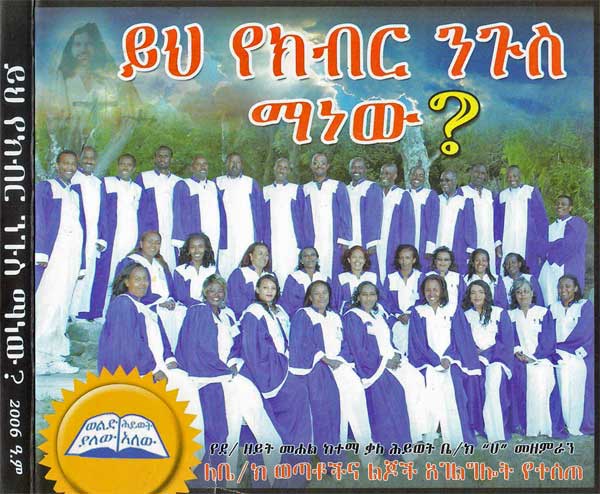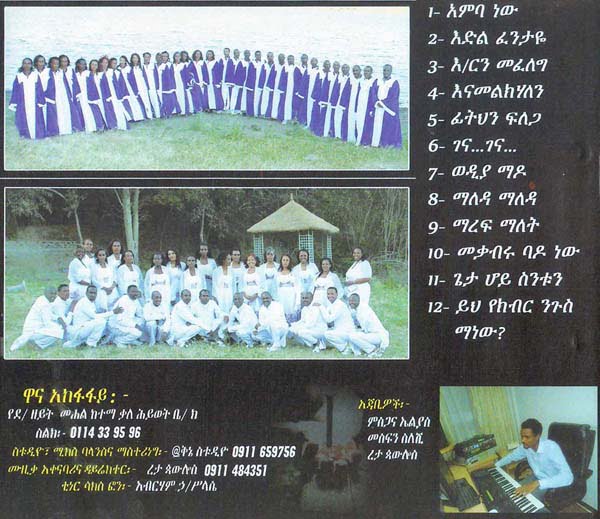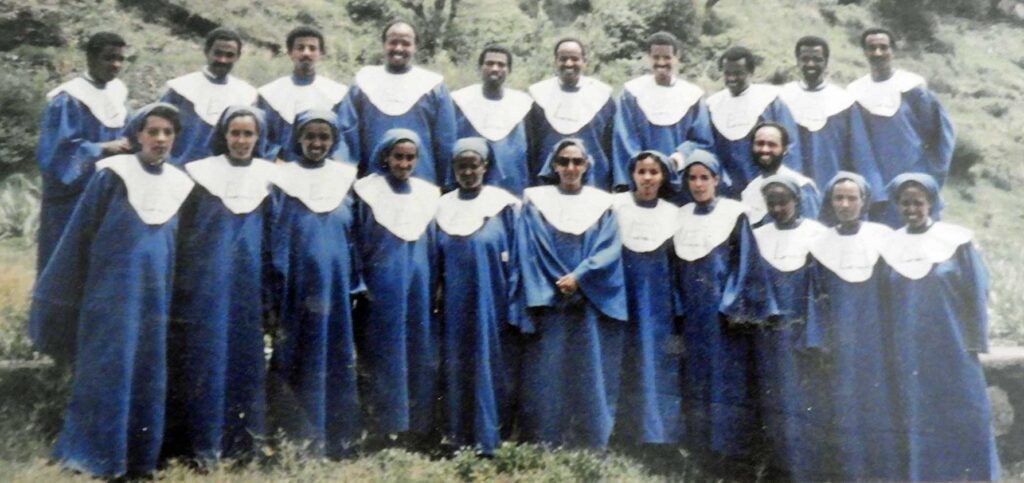In 1973 the three friends known as ‘the trio’—Solomon Beyene, Teshome Haile and Girma Abebe—and their families became the seed sawn that grew to be the Kale Heywet Church (KHC) in Debre Zeit, a major town about 30 miles southeast of Addis Ababa. The next year the Ethiopian Revolution broke out. In 1975, the communist youth in the city destroyed the house in which the believers met to worship.
When the Kale Heywet members realized that they could not continue to openly worship, they joined the local Evangelical Church Mekane Yesus (ECMY) as associate members. In 1976, the serving priest of the congregation, Rev. Regassa Bedada, opened the door for them to serve in all capacities. In 1981, the Debre Zeit ECMY, too, was closed down by the atheist government. All Christians went underground and met in home churches.
In the mid-1980s, when communism started to crumble internationally, religious persecution slowed down in Ethiopia, and the underground churches began to minister visibly. The crucial ground for the Debre Zeit KHC to come to the open was the development program the Ethiopian Kale Heywet Church Home Office started at the edge of the city.
It was a little before this juncture in August 1987 that Zelalem Mengistu and Tiru Kebede founded the Debre Zeit KHC choir. Zelalem had just joined the local church as a full-time evangelist. He and Tiru knew each other from their time in Asmara when Zelalem studied at the local university and Tiru’s husband, Teshome, served in the Ethiopian Air Force. Tiru had been a member of the Debre Zeit EECMY choir before she moved to Asmara.
Soon, a few more joined the choir, e.g. Nigussu Degefa, Debebe Eshetu and Tesfaye Tiroro. Tesfaye and Zelalem were the composers of the earlier songs. Besides, Zelalem played the keyboard during services, and Tiru was like a mother to the choir. In 1989, a few seasoned singers joined the choir. A year later, also one of the leading composers in the legendary Debre Zeit ECMY choir united with the group, Wondiye Ali. It was Wondiye who wrote most of the songs the Debre Zeit KHC choir sang after 1990. He also edited songs composed by others.
The new members gave the Kale Heywet Choir a grand leap. These experienced singers inculcated their accumulated knowledge to the group. Every Friday, the choir members prayed the whole night. Usually, they met again on Saturday afternoon and Sunday early morning for prayer and practice sessions. Only after so much prayer, they took the stage to worship. Saturating their ministry with prayers was the influence of the more experienced members of the choir
After 1990 the choir was blessed with more than 200 new songs. Some of the lyrics were composed during the Friday night vigils. Then melodies were added, and the choir rehearsed the new songs until the wee hours of the morning. The songs had different topics and were sometimes prophetic. In the years 1990-1992, when the condition in Ethiopia was very precarious, the choir intonated reassuring songs. When the society was at a brink of break down, the choir professed, Amba naw (‘He is the Rock!’). When the Christians needed His uplifting, the choir sang out, Merkebay (‘Our Ship’).
The choir became well-known in Debre Zeit and beyond. Invitations flowed in, and doors opened. Wherever the choir went to serve, blessings poured. At the end of the services, the group often sang, ‘I am an unworthy servant’ so that the singers’ hearts might not be puffed up. Other songs they presented were, ‘We will worship You’, ‘Seeking the Lord’, ‘Come, Oh Come, Come Quickly,’ ‘To Our Foundation’, ‘My Portion’, ‘This King of Glory’ and ‘I Surrender’.
Albums
(1) _ _ _ [_ _ _, _ _ _] (Title of the cassette in Fidal plus English translation?) Cassette with Amharic songs, released by …, Addis Ababa (?), 1993.
image?
(2) _ _ _ [_ _ _, _ _ _] (Title of the cassette in Fidal plus English translation?) Cassette with Amharic songs, released by …, Addis Ababa (?), 1997
image?
(3) Yəh yäkəbər Nəgus manəw? [ይህ የክብር ንጉስ ማንው? Who is this King of Glory?]. CD (or VCD?) with Amharic songs, recorded in Addis Ababa, 2006.


Songs in hymn books
If applicable, please give the page / hymn numbers in Wudasé Amlak, etc.
Audio
albums/ collections
?
songs with lyrics
ዝም ብዬ (video publ. in 2016):
እግዚአብሔርን መፈለግ (2017):
አምባ ነው (2019):
Video
recorded in 2017:
Pictures
